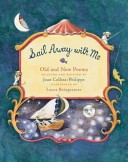
A collection of poems with sailing and sea themes, including traditional poems such as “My Bonnie Lies Over the Ocean” and “The Owl and the Pussycat.”

A collection of poems with sailing and sea themes, including traditional poems such as “My Bonnie Lies Over the Ocean” and “The Owl and the Pussycat.”
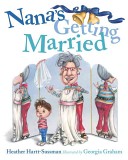
A young boy disapproves of his grandmother dating her boyfriend, Bob, because she spends more time with Bob than with him, and he tries to find ways to separate them before their wedding.
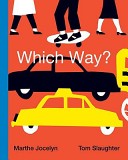
A new book from the team of Marthe Jocelyn and Tom Slaughter,Which Way?is an invitation to explore and understand the concepts we see every day in the signs around us. Navigating the world involves many decisions. How do we know which way to go? Will we pedal or drive? Do we need a map? Will we detour to see the scenery? This colorful book takes the reader along the right path; introducing road signs, directions, stoplights, and common sights that are part of any journey.
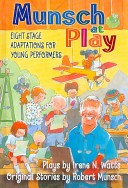
Presents simple stage adaptations, suitable for school use, of eight stories by Robert N. Munsch, along with staging suggestions and ideas for easily obtainable sets, props, and costumes.
The stories included are: • Angela’s Airplane • Stephanie’s Ponytail • Mortimer • 50 Below Zero • Mud Puddle • Millicent and The Wind • Murmel, Murmel, Murmel • The Paper Bag Princess
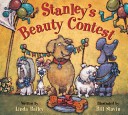
Stanley’s people are so preoccupied with primping him for the dog show in the park that they forgot his breakfast. This makes Stanley “very” grumpy. At the park, Stanley meets up with his old friends Nutsy, Alice and Gassy Jack. Together the friends look longingly at the grand prize: the biggest, most scrumptious-smelling dog cookie ever. Once Stanley gets a whiff of its bubbling cheese, sizzling bacon and apple pie aromas, he’s determined to win. So what if he’s not the fastest, most talented or most beautiful dog in the show? We know that Stanley’s rumbling tummy always leads him into adventure — or a big pile of trouble — and this time is no exception. Join Stanley and his friends in the best dogpile ever as they show us humans that dogs know best, and that what really counts is having fun!
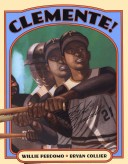
A little boy named Clemente learns about his namesake, the great baseball player Roberto Clemente, in this joyful picture book biography. Born in Puerto Rico, Roberto Clemente was the first Latin American player to be inducted into the Baseball Hall of Fame, and the only player for whom the five-year initiation period was waived. Known not only for his exceptional baseball skills but also for his extensive charity work in Latin America, Clemente was well-loved during his eighteen years playing for the Pittsburgh Pirates. He died in a plane crash while bringing aid supplies to earthquake victims in Nicaragua. Willie Perdomo’s rhythmic text and Bryan Collier’s energetic art combine to tell the amazing story of one of baseball’s greats.
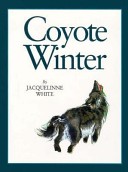
In the worst winter in living memory. The people in the tiny northern Alberta Hutterite colony are confined by the relentless snow. Finally the thaw comes and the colony’s school children and their teacher are able to take their first walk of spring.To their dismay, the children discover a coyote caught in a trap. When they release it they are amazed to find that the animal makes no attempt to bite or to run away. Instead, it scampers like a dog, delighting in a freedom that every living creature can understand.The recording of this extraordinary event was the teacher’s dying wish. Her sister, Jacquelinne White, has told the story in evocative words and paintings.
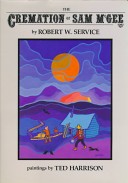
Constantly suffering from the cold, Sam makes his companion on the Arctic trail promise to cremate him when he dies, which the companion does–to his great surprise.
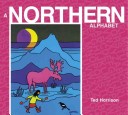
A is for Arctic, B for Bering Sea, C for Clyde River – and Z for Zangeza Bay – all to be explored above the 60th parallel. From the Hardcover edition.
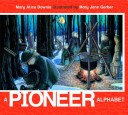
A is for Abigail and Anna, Zebediah’s two sisters. He is making them an alphabet book. From B, which stands for bandalore, a forerunner of the yoyo, H for the hornbook that taught children to spell, and on through the pigeons that blackened the sky, to the uniform that Papa wore when he defended the king, right through to X for the eXhaustion of parents who are homesteading. This lovely romp through the seasons on a pioneer farm is full of fascinating information. Artist Mary Jane Gerber has placed numerous items in each of her paintings and detailed borders, and there is a useful list of them for readers to find. Author Mary Alice Downie has included detailed background notes, making this a sweet introduction to our history. From the Hardcover edition.